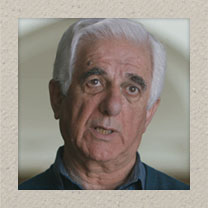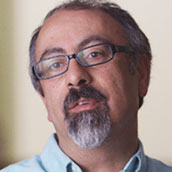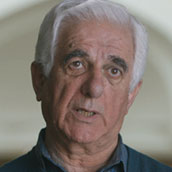 Salim Tamari is Professor of Sociology at Birzeit University, West Bank, Palestine. He is also the director of the Institute of Jerusalem Studies and adjunct professor at the Center for Contemporary Arab Studies at Georgetown University. Tamari studied at Birzeit College before receiving a B.A. in politics from Drew University in New Jersey, United States. He later received an M.A. in sociology from the University of New Hampshire and a Ph.D. in sociology from the University of Manchester. Tamari has been a visiting fellow at the Aga Khan Program for Islamic Architecture at MIT, and has been a visiting professor at the University of California Berkeley, New York University, Cornell University, University of Chicago and Harvard University. His publications include: The Mountain Against the Sea (University of California Press, 2008), Biography and Social History of Bilad al Sham (edited with I. Nassar,2007, Beirut IPS), Pilgrims, Lepers, and Stuffed Cabbage: Essays on Jerusalem’s Cultural History (edited, with I. Nassar, IJS, 2005).
Salim Tamari is Professor of Sociology at Birzeit University, West Bank, Palestine. He is also the director of the Institute of Jerusalem Studies and adjunct professor at the Center for Contemporary Arab Studies at Georgetown University. Tamari studied at Birzeit College before receiving a B.A. in politics from Drew University in New Jersey, United States. He later received an M.A. in sociology from the University of New Hampshire and a Ph.D. in sociology from the University of Manchester. Tamari has been a visiting fellow at the Aga Khan Program for Islamic Architecture at MIT, and has been a visiting professor at the University of California Berkeley, New York University, Cornell University, University of Chicago and Harvard University. His publications include: The Mountain Against the Sea (University of California Press, 2008), Biography and Social History of Bilad al Sham (edited with I. Nassar,2007, Beirut IPS), Pilgrims, Lepers, and Stuffed Cabbage: Essays on Jerusalem’s Cultural History (edited, with I. Nassar, IJS, 2005).
His book Year of the Locust captures in page turning detail the end of the Ottoman world and a pivotal moment in Palestinian history. Using the diaries of Ihsan Hasan al-Turjman (1893–1917), the first ordinary recruit to describe World War I from the Arab side, Tamari follows the misadventures of an Ottoman soldier stationed in Jerusalem. His indispensable introduction places the diary in its local, regional, and imperial contexts while deftly revising conventional wisdom on the disintegration of the Ottoman Empire.
About the life and music of Wasif Jawhariyyeh see these published diaries and articles:
The Storyteller of Jerusalem: The Life and Times of Wasif Jawhariyyeh, 1904-1948. Edited by Salim Tamari & Issam Nassar; trans. by Nada Elzeer.
Tamari, Salim. “Jerusalem’s Ottoman Modernity: The Time and Lives of Wasif Jawhariyyeh.” Jerusalem Quarterly File. 3.1 (2000): 5-27.
Tamari, Salim. “The Vagabond Café.” Jerusalem Quarterly File (Oct. 2003): 23-36.













